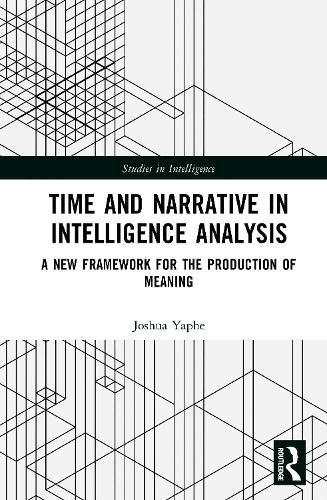Readings Newsletter
Become a Readings Member to make your shopping experience even easier.
Sign in or sign up for free!
You’re not far away from qualifying for FREE standard shipping within Australia
You’ve qualified for FREE standard shipping within Australia
The cart is loading…






This book offers a new framework and set of standards for intelligence analysis, drawing from a variety of academic disciplines, such as philosophy, historiography, literary theory and semiotics.
The U.S. Intelligence Community is guided by a conviction that its practitioners are engaged in the scientific pursuit of fact-based evidence and its institutions uphold a set of tradecraft skills based on objectivity, timeliness and non-politicization that serve to define professionalism. That approach is counterintuitive to the way analysts actually seek to use language and rhetoric to convince and persuade readers, and counterproductive to the future recruitment and retention of subject matter experts. This book re-examines the assumptions and biases that underlie the intelligence profession in America and its increasing turn toward Artificial Intelligence, with case studies of declassified analytical products on Argentina, China, Iraq, Italy and South Africa.
This book will be of much interest to students of intelligence, national security, philosophy, US politics and foreign policy.
The Open Access version of this book, available at http://www.taylorfrancis.com, has been made available under a Creative Commons Attribution-Non Commercial-No Derivatives (CC-BY-NC-ND) 4.0 license.
$9.00 standard shipping within Australia
FREE standard shipping within Australia for orders over $100.00
Express & International shipping calculated at checkout
This book offers a new framework and set of standards for intelligence analysis, drawing from a variety of academic disciplines, such as philosophy, historiography, literary theory and semiotics.
The U.S. Intelligence Community is guided by a conviction that its practitioners are engaged in the scientific pursuit of fact-based evidence and its institutions uphold a set of tradecraft skills based on objectivity, timeliness and non-politicization that serve to define professionalism. That approach is counterintuitive to the way analysts actually seek to use language and rhetoric to convince and persuade readers, and counterproductive to the future recruitment and retention of subject matter experts. This book re-examines the assumptions and biases that underlie the intelligence profession in America and its increasing turn toward Artificial Intelligence, with case studies of declassified analytical products on Argentina, China, Iraq, Italy and South Africa.
This book will be of much interest to students of intelligence, national security, philosophy, US politics and foreign policy.
The Open Access version of this book, available at http://www.taylorfrancis.com, has been made available under a Creative Commons Attribution-Non Commercial-No Derivatives (CC-BY-NC-ND) 4.0 license.